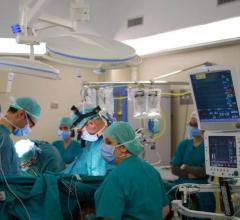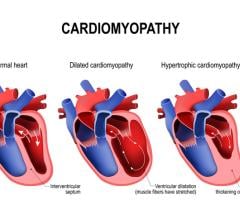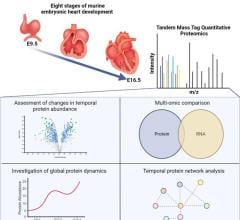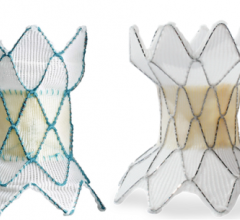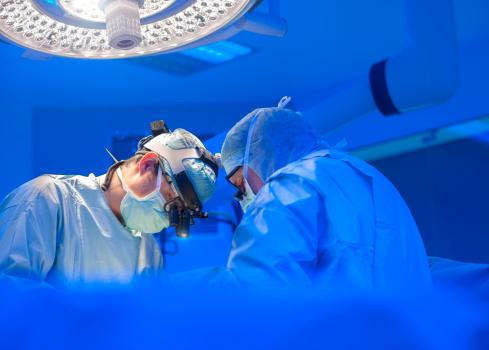
Photo courtesy: Getty Images
September 15, 2022 — Cardiac Implants LLC has announced the successful initial deployment of its Annuloplasty ring with implementation of a therapeutic adjustment procedure using its innovative Tri-Ring percutaneous annuloplasty device.
According to a statement issued by the company, this first-of-its-kind Annuloplasty device deployed and subsequent adjustment of the ring system demonstrates the advantage of a two-stage approach using a device specifically designed for the tricuspid heart valve.
The procedure was conducted by the structural heart team at NewYork-Presbyterian and Weill Cornell Medicine, led by Dr. Mark Reisman, director of structural heart disease at NewYork-Presbyterian/Weill Cornell Medical Center and recruited as a professor of medicine at Weill Cornell Medicine; and Dr. Stephanie Mick, director of robotic and minimally invasive cardiac surgery at NewYork-Presbyterian/Weill Cornell Medical Center and the Carrie and David Landew Associate Professor of Cardiothoracic Surgery at Weill Cornell Medicine. The adjustment procedure represents the first minimally invasive percutaneous annuloplasty in the United States using a two-stage clinical approach and utilized Cardiac Implants’ second-generation Tri-Ring percutaneous annuloplasty device, a complete circular ring implanted from the internal jugular vein in the neck.
“This signifies a paradigm shift in demonstrating the importance of permissive healing of an annuloplasty device placed in the tricuspid annulus. The healing period allowed for significant force to be placed on the ring when cinching at the time of the adjustment procedure. The adjustment procedure was performed 90 days after the initial deployment of the device and resulted in a significant reduction in annular area and tricuspid regurgitation,” commented Dr. Reisman.
“This is an important advance for a problem that is very often too risky to approach surgically. Using the body's own healing mechanisms to secure the ring is a potential game changer here, because the tricuspid annulus is a delicate and moving structure and challenging to reliably secure without traditional surgical techniques,” said Dr. Mick.
As part of the process, a patient would receive the initial implant of Cardiac Implants’ Tri-Ring device 90 days prior to the ring adjustment, allowing a healing period between ring implantation and ring adjustment for strong bonds to form between the device and native tricuspid annular tissue. The device adjustment then reduces the diameter of the ring, decreasing the diameter of the valve annulus and lessening the leakage of the heart valve. Unlike other valves, the tricuspid valve has little fibrous tissue, making anchoring without a healing interval difficult. The initial device implant procedure takes approximately 90 minutes, and the adjustment procedure approximately 60 minutes.
Tricuspid regurgitation (TR) has a complex pathophysiology, and when left untreated, can lead to long-term adverse consequences. In the United States, it is estimated that some 1.6 million people suffer from TR. If left untreated, TR may lead to chronic heart failure, the leading cause of hospitalization in the United States and Europe. Despite the prevalence of TR, there are limited procedural treatment options for this complex patient population.
“We believe that our percutaneous annuloplasty approach is a breakthrough in the treatment of TR. It is a less invasive alternative to surgery and fulfills the huge unmet medical need for this disease population with treatment aimed at the specific pathophysiology of the tricuspid valve. We are very excited to see the potential for the performance of the Tri-Ring Annuloplasty Device,” said Dr. Mark Turco, CEO, Cardiac Implants.
The Cardiac Implants’ annuloplasty device allows structural heart interventionalists to percutaneously deliver a complete ring on the tricuspid valve annulus. The adjustment tool allows the operator to re-access the ring after a short healing period to adjust the ring to the target valve diameter. The two-stage technique is designed to overcome the risks of implant dehiscence and implant migration seen with other transcatheter approaches and is done without the need for open heart surgery by using a percutaneous delivery approach. Cardiac Implants will continue to enroll in early feasibility studies to gain additional clinical experience.
This clinical case will be highlighted at the Transcatheter Cardiovascular Therapeutics (TCT) conference in Boston, September 16-19, 2022.
Cardiac Implants LLC is engaged in the development and clinical investigation of percutaneous transcatheter devices for the treatment of structural heart diseases. The first product under development is a percutaneous complete ring annuloplasty device for the treatment of patients with tricuspid regurgitation. The Tri-Ring device is the only one of its kind designed to specifically meet the mechanical and functional endpoints of surgical ring annuloplasty, currently the clinical gold standard for surgical valve repair.
Founded in 2013, Cardiac Implants is headquartered in American Canyon, CA, with principal R&D and manufacturing operations in American Canyon and Yokneam, Israel. All products under development are investigational and for investigational use only and not approved for clinical use in any jurisdiction, including the United States.
For additional information: https://www.cardiac-implants.com/
Related Coverage:


 March 31, 2025
March 31, 2025 

